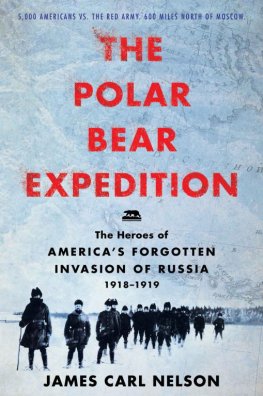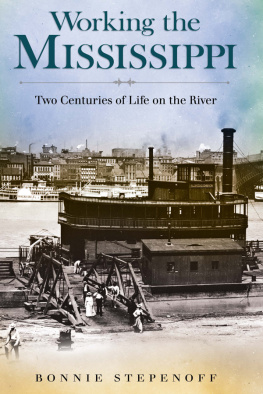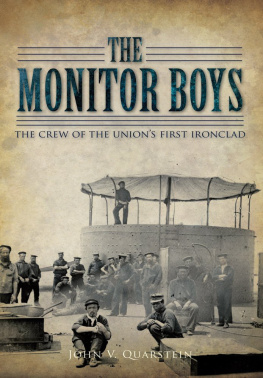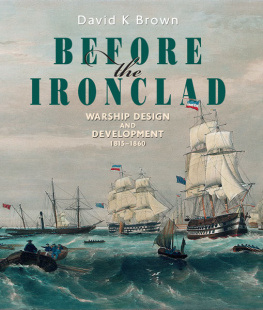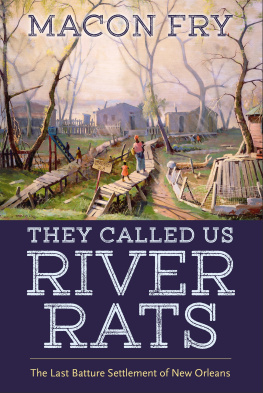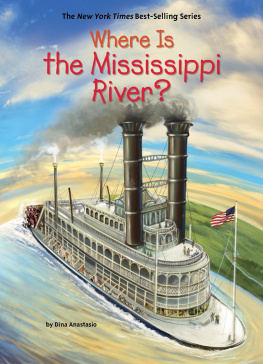JAMES L. NELSON
Thieves Of Mercy
TO JONATHAN BONAVENTURE NELSON, MY BEAUTIFUL BOY
Ere we were two days old at sea, a pirate of very warlike appointment gave us chase.
Finding ourselves too slow of sail, we put on a compelled valor, and in the grapple I boarded them.
On the instant they got clear of our ship, so I alone became their prisoner.
They have dealt with me like thieves of mercy
SHAKESPEARE, HAMLET, ACT IV, SCENE 6
The completion of the iron-clad gunboat at Memphis, by Mr. Shirley, is regarded as highly important to the defenses of the Mississippi. One of them at Columbus would have enabled you to complete the annihilation of the enemy.
STEPHEN R. MALLORY, SECRETARY OF THE CONFEDERATE NAVY, TO GENERAL LEONIDAS POLK
It was nighttime in the shipyard, the working day long over. But there were men there still, nearly fifty men, standing around in the dirt and sawdust. The air was damp and warm, alive with summer bugs and the sounds of frogs and the lap of water. Just to the north, the lights that climbed up the steep banks and low hills along the Mississippi showed where the city of Memphis was still awake, like the soldiers at Agincourt, too restless to sleep on the eve of battle. To the men in the shipyard, the city might as well have been Agincourt, it felt so far removed. The men were shipwrights and house carpenters. They were blue-water sailors and river men and black gang. They were from Charleston and New Orleans, Yazoo City and Memphis and Richmond and Mobile, all the states that now formed the Confederate States of America, and a few transplant Yankees thrown in.
There was John Shirley, dancing from one foot to another. There was Ruffin Tanner, his wounded arm still bound with a white bandage. There was Hieronymus Taylor, chief engineer, leaning on a crutch, his splinted leg thrust out in front of him. The glow of his cigar looked like a signal lantern. Red at the masthead.
At the head of them stood Lt. Samuel Bowater, Confederate States Navy. Thirty-five years old, a fifteen-year veteran of the United States Navy, where, after some brief action as an ensign during the Mexican War, he had spent his time visiting foreign ports and seeing that the various ships aboard which he served as lieutenant were clean to navy standards. There had not been much more to do in the old navy.
Bowater smoothed his moustache and goatee, stepped off to the right to get a better look at the ship. The half-dozen men behind him carried torches that spilled their light over the shipyard, the sawmill, the piles of unused timber, the hastily built shacks to house the blacksmiths and carpenters shops, the looming hull of the vessel.
Good. She looks good, Bowater thought. But she was not finished. She had been slated for completion in December of 61, and now it was June of 62 and she was far from done.
It was not for want of trying. It was for want of everything else: iron plate, bolts, machinery, wood, manpower. Timber came from five different sawmills, iron from all over the Confederacy. The first load of bolt and spike iron was taken before it even arrived, not by Yankees, but by officers of the Confederate States Navy who reckoned they had a better use for it.
Despite the pleas of contractor John Shirley to Stephen Mallory, and Stephen Mallorys pleas to the army to detail a minimum of one hundred men with shipbuilding experience to the project, the shipwrights arrived in Memphis in twos and threes. Shirley made use of house carpenters, day laborers, anyone who knew which end of the hammer to hold.
Given all that, it was something of a miracle what Shirley had accomplished. Two ironclads, nearly complete, built in Memphis on the low banks of the Mississippi. The Arkansas and the Tennessee.
Of the two, the Arkansas was much further along, her woodwork all but done, her iron plating bolted on as far as the main deck, her engines on board, if not in place. Bowater looked at the empty ways on which she had been built. The grease from her launch still shone in the light of the torches. They had slid Arkansas into the river and towed her south to Yazoo City. Away from the onrushing Yankees, General Halleck and Commodore Davis and his fleet of ironclad river gunboats coming down from the north, Farragut coming up from the south. Towed her to the heart of the Confederacy, away from the anaconda, squeezing tighter.
But the Arkansas was not Bowaters concern. His was the Tennessee. His third command.
It was just over a year before that he had joined the Confederate Navy, right after witnessing the bombardment of Fort Sumter in his native Charleston. Bowater was a Southern man, a Southern gentleman, but at the time he was also an officer of the United States Navy. He had sworn an oath to that service, and gentlemen of the South did not break oaths easily.
He went with his state, in the end, and with his new country, and had been given command of the CSS CapeFear, an armed tug, which had been shot out from under him in the naval skirmish in Albemarle Sound in North Carolina. He and his men had been transferred en masse to Yazoo City to form the crew of the ironclad Yazoo River, which had met her death at New Orleans, fighting to stop Farraguts fleet from pushing up from the delta to take the Crescent City.
Now Farragut was at New Orleans, that city in Yankee hands, and once again Bowaters men had been moved as a unit to their next ship. The Tennessee.
The white pine planking of her hull looked orange in the light of the torches, her topsides all but lost in the dark. She was framed in oak and planked with pine but there was no iron plate on her yet. The iron was not even there-it was still on the Arkansas side of the river, still waiting for payment. Tennessee was a turtle without a shell.
She was not huge, by ironclad standards. One hundred and sixty-five feet long, more than one hundred feet shorter than the CSS Virginia, the former Merrimack. Thirty-five feet wide. Her waterline, scribed in the planking, was visible six feet above Bowaters head. She was not huge, but she would have been powerful. She might have changed the entire strategic situation on that part of the river.
Son of a bitch, Bowater muttered. He was dragging his feet now, and there was no call for it.
He was not the only Confederate officer there. The provost marshal for the city of Memphis stood nearby, watching, his gray frock coat unbuttoned in the warm night, arms folded with mounting impatience. It was by his order that they were there, doing the job they were doing. But it was not the provosts ship. He did not share Bowaters feelings. He coughed impatiently.
All right, you men. Bowater turned to his crew behind him. Go ahead.
The men with the torches stepped forward, solemn, as if they were part of some religious service. They spread out along the length of the hull and thrust the flames into the bales of cotton stacked under the wooden hull, cotton soaked in turpentine.
All along the length of the Tennessee the flames of the torches swelled into flames like campfires and then like bonfires as the cotton was engulfed. The flames rose up and threw their light all over the shipyard, lighting up the watching men so they were all bright light and dark shadow, flickering over the far ends of the shipyard.
Bowater stepped back. The heat was already too much to bear. He could see the planking on what would have been the ships wetted surface turn black. The caulking between the planks began to burn and then the planks themselves flared as the heavy timbers began to catch fire.
Bowater heard the limping gate of Hieronymus Taylor as the chief engineer stepped up beside him. Well, goddamn me, Capn, Taylor said around his cigar, his accent thick New Orleans. There goes your third ship. He pulled out a flask of whiskey, took a drink, handed it to Bowater. Bowater took it, put it to his lips, and took a big mouthful, a thing he would have considered unthinkable a year before. Captains did not drink with the crew. Samuel Bowater did not drink whiskey from a flask. He did not drink with the likes of Hieronymus Taylor.


